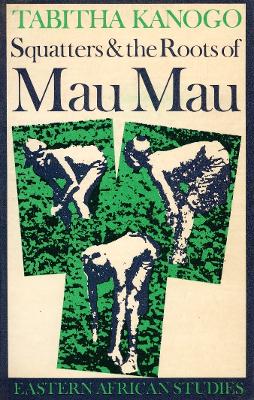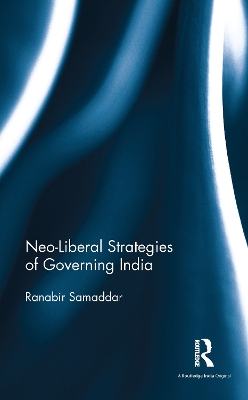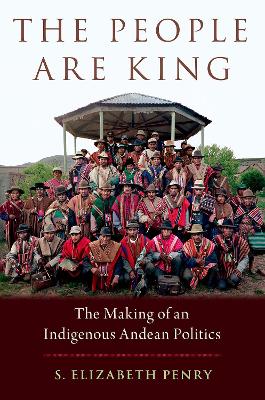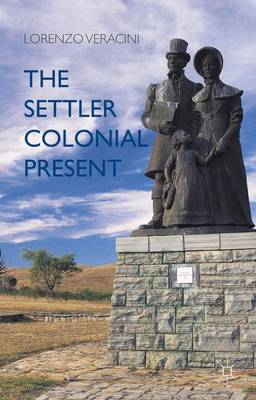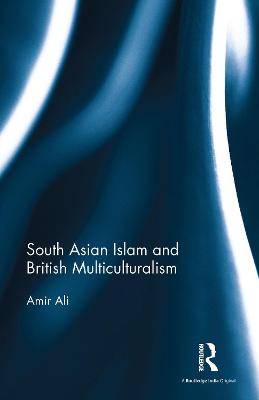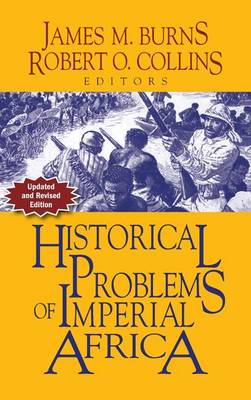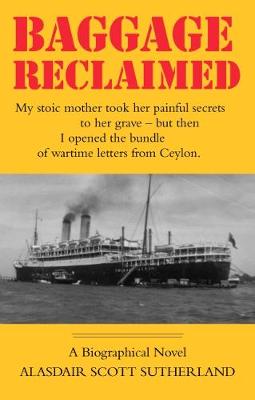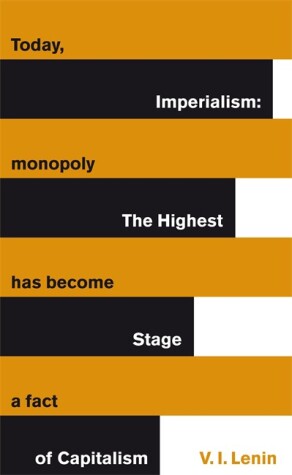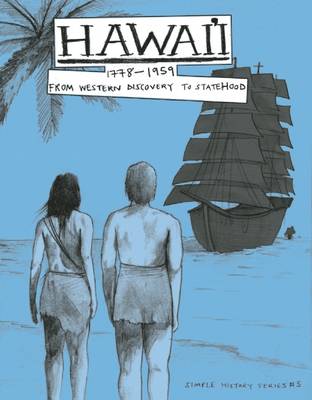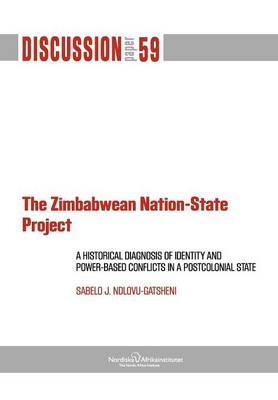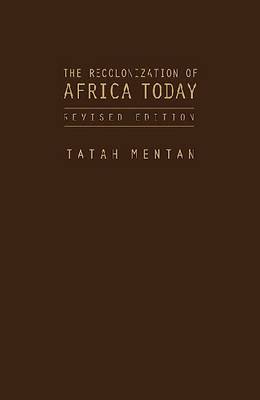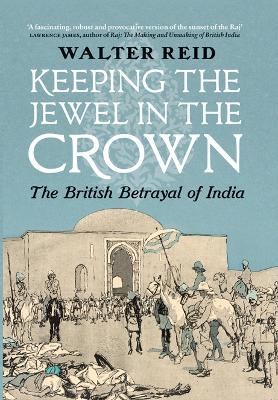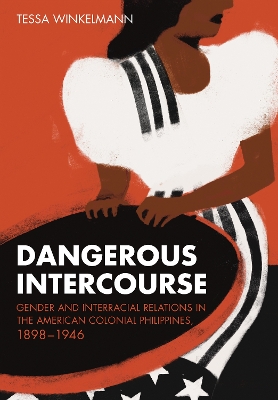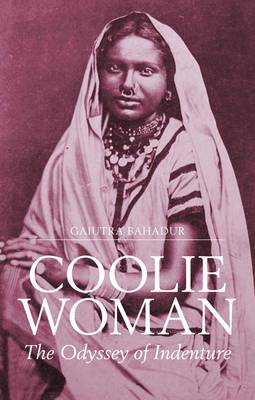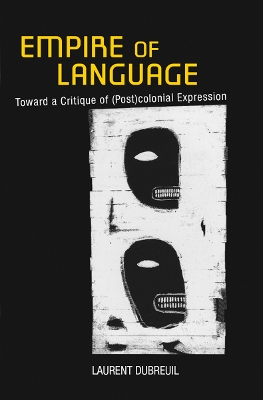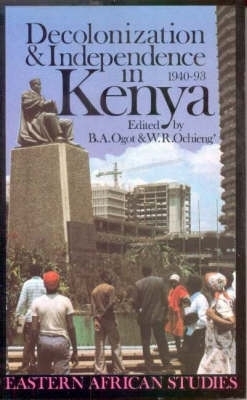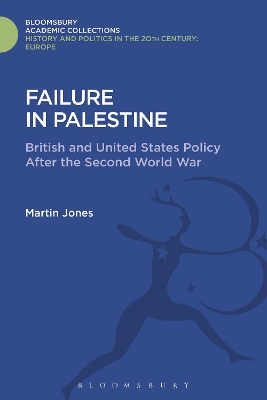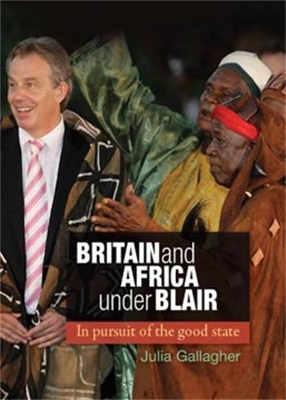The author follows the story of the squatters farming the land in the 'White Highlands' at first unused by the Europeans. After 1923 the white settlers demanded more labour from the squatters and began to restrict their use of theland for cultivation and animal husbandry until by the early 1940s most of the squatters livestock had gone. Kanogo traces the squatters' increasing poverty and disillusion and their involvement in Mau Mau, particularly that of the women. North America: Ohio U Press;...
Neo-liberal Strategies of Governing India and its companion volume Ideas and Frameworks of Governing India tell the story of governance in independent India and address the critical question: how is a post-colonial democracy governed? Further, they attempt to understand why the process of governing a post-colonial democracy, particularly in the neo-liberal age, should be studied as the central question within the history of post-colonial democracy. The volumes offer hitherto unexplored analyses...
In the sixteenth century, in what is now modern-day Peru and Bolivia, Andean communities were forcibly removed from their traditional villages by Spanish colonizers and resettled in planned, self-governed towns modeled after those in Spain. But rather than merely conforming to Spanish cultural and political norms, indigenous Andeans adopted and gradually refashioned the religious practices dedicated to Christian saints and political institutions imposed on them, laying claim to their own rights...
The Settler Colonial Present explores the ways in which settler colonialism as a specific mode of domination informs the global present. It presents an argument regarding its extraordinary resilience and diffusion and reflects on the need to imagine its decolonisation.
Raymond F. Betts considers the 'process' of decolonization and the outcomes which have left a legacy of problems, drawing on numerous examples including Ghana, India, Rwanda and Hong Kong. He examines: the effects of the two World Wars on the colonial empirethe expectations and problems created by independencethe major demographic shifts accompanying the end of the empirethe cultural experiences, literary movements, and the search for ideology of the dying empire and the newly independent nation...
Fear and the Shaping of Early American Societies (Early American History, #4)
Fear and the Shaping of Early American Societies is the first collection of essays to argue that fear permeated the colonial societies of 17th- and 18th-century America and to analyse its impact on the political decision-making processes from a variety of angles and locations. Indeed, the thirteen essays range from Canada to the Chesapeake, from New England to the Caribbean and from the Carolina Backcountry to Dutch Brazil. This volume assesses the typically American nature of fear factors and...
This book analyses South Asian Islam's engagement with the West, and Britain in particular. It traces the roots of British multiculturalism to South Asia and the Deobandi school of Islam. The work shows how the pattern of interaction that initially emerged between the Deobandi Muslims and the colonial British state in late-19th century replicated itself in the British society in the second half of 20th century. The monograph reflects upon Islam's 'compatibility' with liberal democracy as well as...
This book is designed to inform, engage, and stimulate discussions among its readers. Collins and his collaborators have included authoritative statements and analysis by renowned scholars. A distinctive characteristic of the whole anthology is the range of interpretations of classic and recent research. The book offers a full spectrum of emotionally charged theories. Each section presents a set of conflicting arguments to show the state of debates on these highly controversial issues. Extensive...
In his family, "Let's not talk about the past," has always meant "Let's not talk about anything at all." But now in his middle age, Alasdair has a burning need to know about his parents' lives in Ceylon and the way in which his father died. So when, nearing the end of her life, his mother gives him a bundle of wartime letters, he soaks up every word, piecing together the glamorous expat lives of his parents and his own childhood, even returning to Ceylon to see where his father is buried....
Imperialism: The Highest Stage of Capitalism (Penguin Great Ideas)
by Vladimir Lenin
Vladimir Lenin created this hugely significant Marxist text to explain fully the inevitable flaws and destructive power of Capitalism: that it would lead unavoidably to imperialism, monopolies and colonialism. He prophesied that those third world countries used merely as capitalist labour would have no choice but to join the Communist revolution in Russia. GREAT IDEAS. Throughout history, some books have changed the world. They have transformed the way we see ourselves - and each other. They ha...
The Raj was, for two hundred years, the jewel in the British imperial crown. Although founded on military expansionism and undoubted exploitation, it developed over the centuries into what has been called 'benign autocracy' - the government of many by few, with the active collaboration of most Indians in recognition of a desire for the advancement of their country.Charles Allen's classic oral history of the period that marked the end of British rule was first published a generation ago. Now reis...
The Zimbabwean Nation-State Project. A Historical Diagnosis of Identity
by Sabelo J. Ndlovo-Gatsheni
The need for a revision of this well received and reviewed work was obvious to all serious observers of sub Saharan Africa: The emergence in the last decade of the enormous political, economic and social clout of China, the desire of Magrebi states and Egypt to continue a southward policy that includes conversion to Islam, Arab investment and especially control of oil and agricultural lands.
When India became independent in 1947, the general view, which has prevailed until now, is that Britain had been steadily working for an amicable transfer of power for decades. In this book Walter Reid argues that nothing could be further from the truth. With reference to a vast amount of documentary material, from private letters to public records and state papers, he shows how Britain held back political progress in India for as long as possible - a policy which led to unimaginable chaos and s...
Dangerous Intercourse (The United States in the World)
by Tessa Winkelmann
In Dangerous Intercourse, Tessa Winkelmann examines interracial social and sexual contact between Americans and Filipinos in the early twentieth century via a wide range of relationships—from the casual and economic to the formal and long term. Winkelmann argues that such intercourse was foundational not only to the colonization of the Philippines, but to the longer, uneven history between the two nations. Though some relationships between Filipinos and Americans served as demonstrations of US "...
Journey along the famed Tokaido Road--an ancient thoroughfare with a modern twist. The Fifty-Three Stations of the Tokaido is the best-known work of the great 19th century Japanese woodblock artist Utagawa Hiroshige. The series of 53 masterful woodblock prints depicts stops along the ancient Tokaido Road--which, from the eleventh to the nineteenth century, was the main thoroughfare between Tokyo and Kyoto. Though the road itself is now submerged under Japan's twenty-first-century urban landsca...
In 1903 a Brahmin woman sailed from India to Guyana as a 'coolie', the name the British gave to the million indentured labourers they recruited for sugar plantations worldwide after slavery ended. The woman, who claimed no husband, was pregnant and travelling alone. A century later, her great-granddaughter embarks on a journey into the past, hoping to solve a mystery: what made her leave her country? And had she also left behind a man? Gaiutra Bahadur, an American journalist, pursues traces of...
The relationship between power and language has been a central theme in critical theory for decades now, yet there is still much to be learned about the sheer force of language in the world in which we live. In Empire of Language, Laurent Dubreuil explores the power-language phenomenon in the context of European and, particularly, French colonialism and its aftermath. Through readings of the colonial experience, he isolates a phraseology based on possession, in terms of both appropriation and ha...
Decolonization and Independence in Kenya, 1940-93
by Bethwell A Ogot and William R. Ochieng'
In this text, a group of Kenyan historians provide an analysis of the history of the 30 years since Kenya's independence in 1963. The first three chapters examine the transformation of the political arena from the period after World War II to the Mau Mau emergency and the period leading up to independence. There follows a section on Pax Kenyatta, when Jomo Kenyatta remained the pivotal agency in the postcolonial transformation. The chapters on the Moi eralooks to the recent past, as well as for...
Failure in Palestine (History and Politics in the 20th Century: Bloomsbury Academic)
by Martin Jones
Failure in Palestine traces Britain's attempts to reconcile her commitments to Palestine with her interests in the rest of the Middle East through bureaucratic and diplomatic paths to her eventual abandonment of Palestine. The text offers an excellent analysis of British decision making in this crucial period, whose repercussions are felt to the present day.
Africa was a key focus of Britain's foreign policy under Tony Blair. Military intervention in Sierra Leone, increases in aid and debt relief, and grand initiatives such as the Commission for Africa established the continent as a place in which Britain could 'do good'.Britain and Africa under Blair: in pursuit of the good state critically explores Britain's fascination with Africa. It argues that, under New Labour, Africa represented an area of policy that appeared to transcend politics. Graduall...
